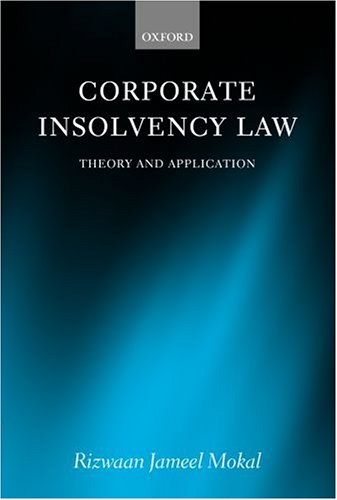
This volume analyses corporate insolvency law as a coherent whole, stemming from common fundamental principles and amenable to being justified or criticised on that basis. The author explains why consistency of principle must be sought and how it might be found in the relevant statutory and case law.
He then constructs an egalitarian theory for the analysis of corporate insolvency law, based on the premise that all the parties affected by this law are to be treated as equals. He argues that this theory can reconcile the dictates of fairness with the demands of economic efficiency.
The many questions relating to the operation of the new administration procedure introduced by the Enterprise Act 2002 are considered in the light of principle. The book also analyses the role of the wrongful trading provisions. It examines, finally, why insolvency law objects to certain transactions at an undervalue and those having a preferential effect.